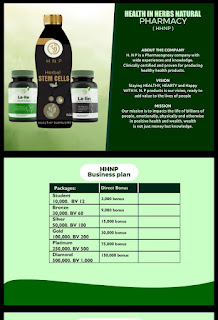NATURAL TREATMENT FOR PROSTATE ENLARGEMENT
NATURAL TREATMENT FOR PROSTATE ENLARGEMENT.
Introduction
Prostate enlargement, medically known as benign prostatic hyperplasia (BPH), is a common condition that affects many men as they age.
The prostate gland, a walnut-sized organ located below the bladder, plays a crucial role in the male reproductive system.
As men get older, the prostate may gradually increase in size, leading to various urinary problems and discomfort.
While conventional treatments are available, many individuals seek natural alternatives to manage prostate enlargement.
This article explores the concept of prostate enlargement, its disadvantages, and common symptoms while focusing on natural treatment options that can improve men's quality of life.
What is Prostate Enlargement (BPH)?
Prostate enlargement, or benign prostatic hyperplasia (BPH), is a non-cancerous condition that affects the prostate gland in aging men.
The prostate gland surrounds the urethra, the tube responsible for carrying urine from the bladder out of the body.
As the prostate gradually grows larger, it can constrict the urethra, resulting in various urinary difficulties.
The exact cause of BPH remains unclear, but hormonal changes associated with aging, particularly an increase in dihydrotestosterone (DHT), are thought to be contributing factors.
Other potential risk factors include a family history of BPH, obesity, lack of physical activity, and certain health conditions like heart disease and diabetes.
Disadvantages of Prostate Enlargement
1. Urinary Symptoms: As the prostate enlarges, it can cause compression of the urethra, leading to bothersome urinary symptoms.
Men with BPH may experience increased urinary frequency, urgency, a weak urine stream, difficulty initiating urination, and the sensation of incomplete bladder emptying.
2. Impact on Quality of Life: The urinary symptoms associated with BPH can significantly impact a man's quality of life.
Frequent trips to the bathroom, especially at night, can disrupt sleep patterns and lead to fatigue and irritability.
3. Urinary Tract Infections (UTIs): BPH may increase the risk of developing urinary tract infections due to the incomplete emptying of the bladder, which creates a breeding ground for bacteria.
4. Acute Urinary Retention (AUR): In severe cases, BPH can lead to acute urinary retention, where a man is unable to pass urine at all. This condition requires immediate medical attention and often involves catheterization.
5. Kidney Complications: If left untreated, BPH can lead to complications like kidney stones or kidney damage due to the backflow of urine into the kidneys.
Symptoms of Prostate Enlargement
1. Increased Urinary Frequency: Men with BPH often experience the need to urinate more frequently, especially during the night (nocturia).
2. Urgency: BPH can cause a sudden and compelling urge to urinate, which may be difficult to control.
3. Weak Urine Stream: A weakened or slow urine stream is a common symptom of prostate enlargement.
4. Straining to Urinate: Difficulty in initiating urination or the need to strain to start urinating may indicate BPH.
5. Incomplete Bladder Emptying: Men may feel that their bladder is not fully empty after urination.
6. Dribbling at the End of Urination: After urination, some men may experience dribbling or leaking of urine.
7. Blood in Urine: In some cases, BPH can lead to blood in the urine (hematuria), which requires immediate medical evaluation.
Natural Treatment Options for Prostate Enlargement
Before we discuss other natural treatment options for prostate enlargement permit me to introduce you to our wonderful supplements that have been addressing all prostate enlargement-related issues.
Let'sproceed.
Natural Treatment Options for Prostate Enlargement
1. Lifestyle Modifications:
a. Diet: Adopting a healthy diet that includes plenty of fruits, vegetables, whole grains, and lean proteins can support prostate health.
Foods rich in antioxidants and anti-inflammatory properties, such as tomatoes, berries, and fatty fish, may be beneficial.
b. Exercise: Engaging in regular physical activity can help manage weight and improve overall health, potentially reducing the risk of BPH progression.
c. Stress Management: Chronic stress may worsen BPH symptoms, so practicing stress-reduction techniques like yoga, meditation, or deep breathing can be helpful.
2. Herbal Supplements:
a. Saw Palmetto: Extracted from the berries of the saw palmetto plant, this herbal remedy is commonly used to alleviate BPH symptoms. Saw palmetto may help reduce DHT levels and improve urinary flow.
b. Pygeum Africanum: Derived from the bark of the African plum tree, pygeum has anti-inflammatory properties and may help improve urinary symptoms associated with BPH.
c. Beta-Sitosterol: This plant sterol found in various foods, such as nuts and seeds, has shown promising results in reducing BPH symptoms.
3. Essential Fatty Acids:
a. Omega-3 Fatty Acids: Found in fish oil supplements or fatty fish like salmon, omega-3 fatty acids have anti-inflammatory properties and may support prostate health.
4. Zinc:
a. Zinc is an essential mineral that plays a role in prostate health. It can be obtained through a balanced diet or as a supplement if necessary.
5. Ayurvedic Remedies:
a. Ayurvedic medicine offers various herbal formulations and therapies that aim to balance the body's energies and support prostate health.
These treatments often include herbs like Tribulus Terrestris, Shilajit, and Gokshura.
Prostate enlargement is a prevalent condition that can significantly impact a man's well-being and quality of life.
While conventional treatments are available, many individuals seek natural approaches to manage their symptoms and support prostate health.
Lifestyle modifications, herbal supplements, essential fatty acids, zinc, and Ayurvedic remedies are among the natural treatment options that have shown promise in alleviating BPH symptoms.
It's essential for men experiencing urinary symptoms to consult with a healthcare professional before starting any natural treatment regimen.
An informed and personalized approach to managing prostate enlargement can help men lead healthier and more fulfilling life as they age.
What do you think?
Drop a comment in the comment section below.











Comments
Post a Comment